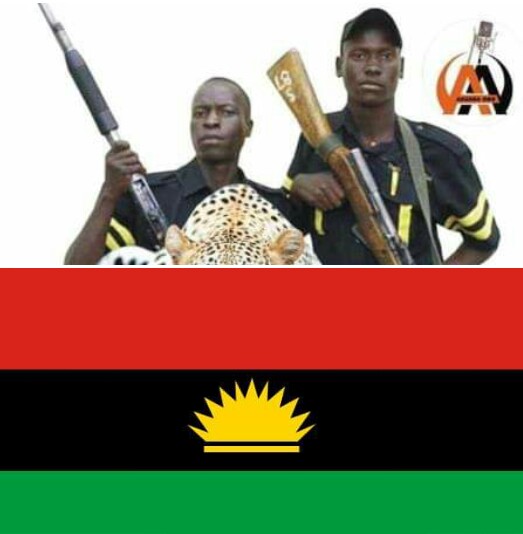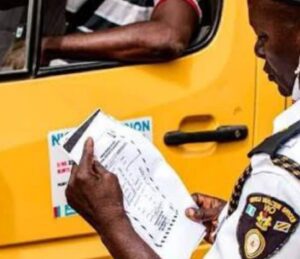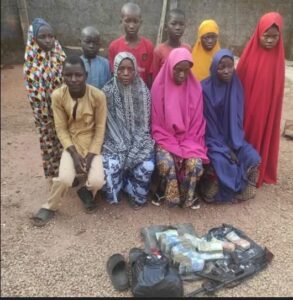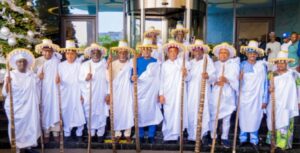
IS it just merely fortuitous that the utterly unnecessary Amotekun controversy in the South West is coming at exactly the same time as Nigeria is commemorating 50 years to the end of the county’s three-year fratricidal conflagration – one of the bloodiest and deadliest civil wars in Africa? That was a largely ethno-regional inspired conflict among supposed brothers in which no less than two million lives were estimated to have been lost. This was in addition to the colossal loss in properties, businesses and infrastructure on a humongous scale. The absolutely avoidable arrogance and total lack of humanness in the response of the Attorney General of the Federation (AGF), Mallam Abubakar Malami, to the decision of the South West governors to set up the Western Nigeria Security Network popularly known as ‘Operation Amotekun’ shows vividly that the mindset that led the country down the ruinous path of war is still alive and well in some quarters in today’s Nigeria.
In his brusque and uncharitable reaction to the Amotekun initiative the AGF, Malami, failed to acknowledge that the governors were responding to serious existential threats to their people throughout the length and breadth of the region largely by an assortment of heavily armed criminals.
Anybody reading Malami’s position with little information about happenings in contemporary Nigeria could be forgiven for believing that the governors just woke up one day to engage in a fantastical enterprise just to flex muscles with the Federal Government and threaten the security of the nation. Of course, nothing could be further from the truth. Thousands of lives have been lost, maimed, raped and denuded of their humanity by these elements operating with impunity in the South West.
However, Malami opts for a rigidly and narrowly legalistic position on the matter. As far as he is concerned, the relevant sections of the extant 1999 constitution place the responsibility for the defense of the country’s territorial jurisdiction and maintenance of security solely in the hands of the military, security and police agencies all controlled by the Federal Government. If these laws are patently not working thus endangering lives and property across the country, Malami does not see it as his responsibility, given the sensitive office he occupies, to help strengthen and reshape the laws as well as adjust them to the realities that confront millions of Nigerians daily. Nigerians he seems to believe are made for the laws and not the laws for Nigerians.
In displaying an utterly discreditable deficit in emotional intelligence and a capacity for human empathy, the AGF does not even refer in a fleeting sentence to the huge scale of loss of lives and property in the South West, which prompted the governors’ action. He gives the impression that the laws as they exist are working quite efficiently and need no tinkering with. It is, of course, not impossible that he is on permanent mental vacation on some exotic resort while residing physically in Nigeria. Were Malami to face the reality, he would admit that in most states of the country today, the Nigeria Police Force (NPF) is virtually entirely dependent on the state governments for funding, equipment and operational costs. So much, then, for his deification and mummification of sections of the constitution that have outlived their usefulness; such would have since attracted the urgent remedial intervention of a more brilliant, objective and proactive AGF.
A few weeks ago, the military high command gave the indication that soldiers will soon be withdrawn from the diverse operations in which they are involved across the country. In taking this decision, they argued that many of these areas have been stabilized and the police can now revert to their constitutional role of maintaining internal security while the military concentrates on its stipulated institutional role of defending the country’s territorial integrity. The bottom line is that those Unitarian sections of the constitution so gleefully cited by the AGF to thwart the Amotekun initiative have become worse than useless. It is dangerous at a time like this to have an AGF with a unitary mindset that seeks, against all canons of rationality, to impose a monist and monolithic security structure on a plural polity like Nigeria.
It is unfortunate that revered elder statesman and former governor of Kaduna State in the Second Republic, Alhaji Balarabe Musa, could have inexplicably come to the conclusion that the establishment of the Amotekun initiative was a forerunner to the creation of an Oduduwa Republic in the South West. Nothing could be more preposterous as he offers no empirical or logical basis for this kind of assertion. The South West has been consistent in making a case for the re-federalization of Nigeria rather than giving any inkling of wanting to break away from the country. It is indeed the rather reckless and extremist posturing of the likes of Balarabe Musa, Dr. Junaid Muhammed, Meyitti Allah spokesmen and other hot heads from the North that play into the hands of those who habour separatist designs for the country.
When certain incredibly irresponsible voices from the North, contend that the retention of Operation Amotekun will cost the South West the presidency in 2023, they create the impression that they are a set of first class Nigerians who have the prerogative of handing out the presidency at their will to second hand citizens of their choice. This is brazenly unintelligent and counterproductive in maintaining the country’s cohesion and harmony. It is indeed the unidirectional thinking and excessively centralizing mind set of the likes of Malami, Junaid Muhammed, Balarabe Musa, Meyitti Allah and others that enable groups like the banned Indigenous Peoples of Biafra (IPOB) to win converts and sympathizers to their secessionist causes. Nobody wants to be accorded inferior second class status in a country where we are all supposed to enjoy equal citizenship.
Responding to the misgivings of many in the South East on the perceived marginalization of the region in terms of appointments after the 2015 elections, for instance, some members of the ruling party publicly stated that positions would be filled based on the electoral performance of the party in the different zones of the country. That was unnecessary and insensitive. Again, the strong armed response of the administration to IPOB’s largely ineffectual Biafra agitations only helped to further its cause in the minds of many people of the region. You can forcefully drive an organization underground; it is more difficult to eradicate the imprints of an idea from the minds of men.
Instead of approaching the whole Biafra issue from an essentially hostile and uncompromising perspective, for instance, is it not possible to perceive Biafra as a national asset? Just as the birthday of Martin Luther King Jr is now a public holiday in the United States, is it out of place for Nigeria to have an annual National Biafra Day owned by all Nigerians? There would, in my view be two aspects to such an annual Biafra remembrance day. First, will be symposia, conferences and other activities nationwide that will apply the lessons of Biafra to contemporary experiences such that we will annually renew our commitment to ensuring that ‘Never Again’ would such a tragedy of colossal proportions be allowed to happen in our country ever again.
On the more positive side, we would also celebrate annually the example of Biafra, which demonstrated the capacity of the black man to rise to the demands of scientific and technological development when faced with acute existential challenges. To demonstrate my point, let me quote extensively from a presentation by the late Professor Pius Okigbo at the First Obafemi Awolowo Foundation Dialogue in February, 1993. In his pungent words, “Why do I seem so confident that the Nigerian is capable of producing the technological change required to propel the country into the next century? I am heartened by the fact that it has been done before. The Nigerian civil war proved beyond doubt that with determination and a conducive environment, the Nigerian can be induced to recreate a technological civilization. The ‘Biafran’ scientific community was able to develop entirely out of purely local materials, weaponry that included anti-aircraft rockets, mortar bombs, land mines, tanks and armoured troop carriers, food substitutes involving the use of hitherto unused plants and crops”.
Continuing, Professor Okigbo said, “They succeeded in building out of entirely locally fabricated materials, a giant petroleum refining facility and thereby made the technology so diffuse and more universally understood and applied than anywhere else in the world. They installed an air traffic control on wheels for use in an airport utilized only in the hours of darkness. Yet, save the airport of Johannesburg, that airport was able to handle more flights in those few dark hours per night than any other airport in Africa operating twenty four hours a day. These are solid technological achievements started and learned in less than three years of wartime. It gave at once to the blacks anywhere the confidence that here at last, since the iron age, it has been possible to create in black Africa a truly indigenous technological civilization”.
To fully liberate the potentials of Nigeria for rapid socio-economic advancement including ensuring maximum security for her people, the likes of AGF Malami and his fellow travelers must find a quick way of escape from the unitary mindset that inhibits creative intellectual exertions.












